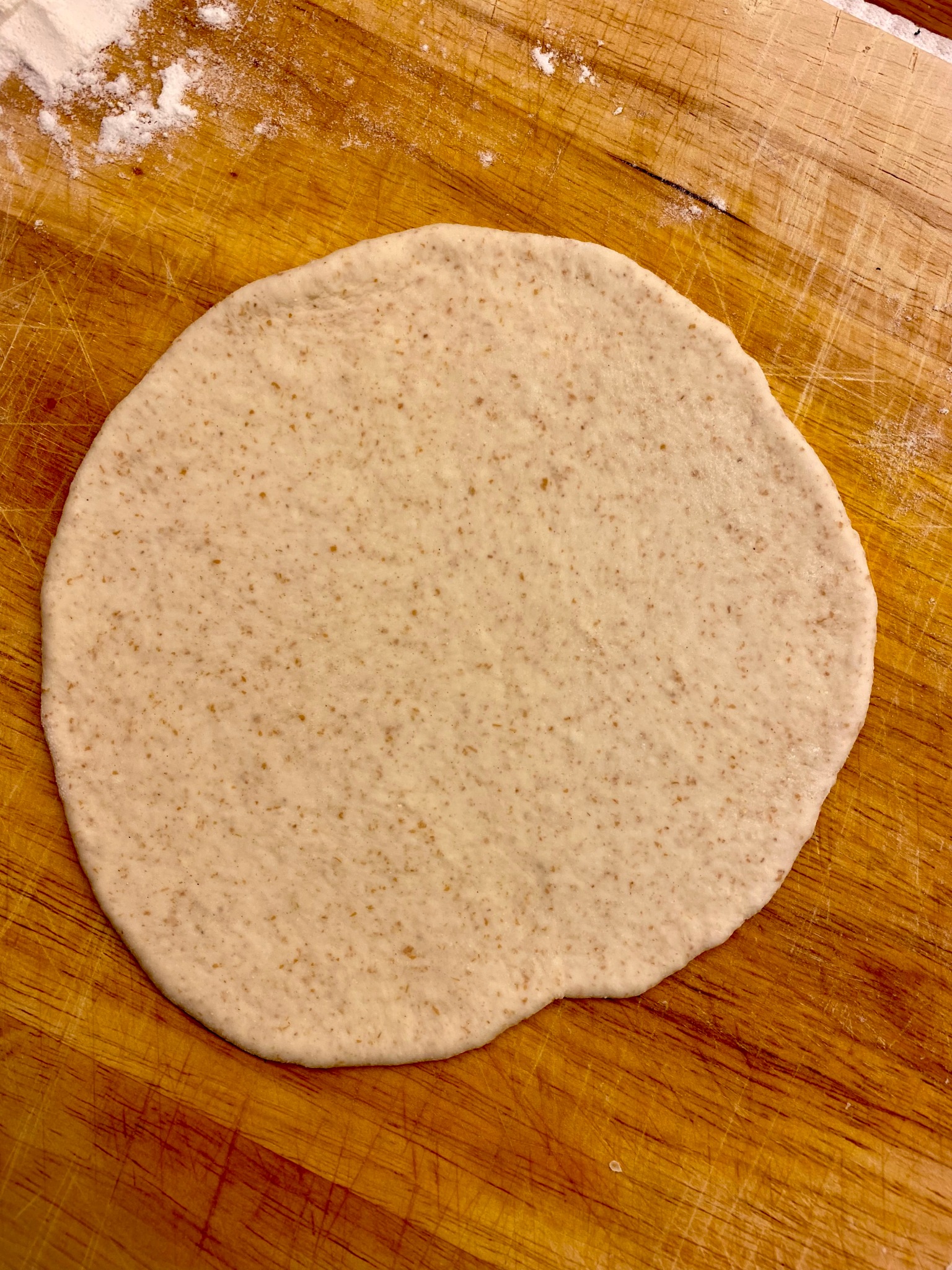Yes, yes, I know. You can buy these cheaply, pre-packed with a shelf life as long as an elephant’s memory, but really? Seriously? Are you going to go through all the trouble of making babaganoush, eggplant salad, hummus and stuffed vine leaves just to spoil the meal with a preservative laden bag of floppy starch pancakes? No, you are not. You are joining me in making your own pita bread.
P.S.: All the recipes for the above mentioned dishes will slowly be added to my blog. Give me a week or two. Babaganoush
makes 10 pitas
For the Poolish:
- 50g organic wholemeal flour
- 50g organic plain flour
- 7g active dry yeast
- 250ml lukewarm water
Inside your stand mixer bowl, mix the flour with the yeast, pour in the water, stir to a reasonably smooth dough with a fork and leave to bubble up. You want the surface to be pretty much covered with little bubbles and if your water is not lukewarm, this can take an hour or more, so you know what I’m saying.

To finish the Bread:
- 350g organic plain flour plus extra
- 6g salt
- 3 Tbsp good olive oil
Pour the flour and salt on the poolish, add the olive oil and knead at the lowest speed in the mixer for just 2 minutes. Sprinkle about 5g flour over the top and leave to rest for 10 minutes.
Knead again for 2 minutes at low speed. Remove the hook, lightly cover the bowl and leave to rise until doubled, about an hour.
Once the dough has risen, knock it back and put it on a lightly floured work surface. Now divide it into 75g portions, roll each portion into a ball and cover the dough balls with a damp cloth.

Heat a dry stainless steel pan to medium heat. Roll one ball into a flat disk, about 6-7 inches across and cook in the dry pan. Make sure to wipe any excess flour from the pan before continuing on to the next pita.

NOTE: The pitas are really best eaten fresh, but you can make them in advance and keep them covered with a dry tea towel in a very low oven for an hour or so. Make sure your oven is at a very low temperature. You don’t want your tea towel to catch fire.
